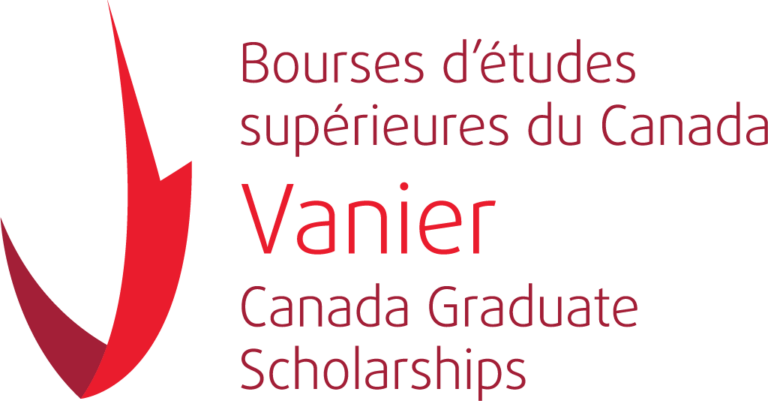Deadline: November 1, 2023
Applications are open for the Vanier Canada Graduate Scholarship Program 2023/2024. Named after Major-General Georges P. Vanier, the first francophone Governor General of Canada, the Vanier Canada Graduate Scholarships (Vanier CGS) program helps Canadian institutions attract highly qualified doctoral students.
The Government of Canada launched the Vanier CGS program in 2008 to strengthen Canada’s ability to attract and retain world-class doctoral students and establish Canada as a global centre of excellence in research and higher learning. Vanier Scholars demonstrate leadership skills and a high standard of scholarly achievement in graduate studies in the social sciences and humanities, natural sciences and/or engineering, and health.
Students wishing to apply for a Vanier CGS must do so through the Canadian institution to which they are applying for doctoral studies. Based on their quotas, Canadian institutions will forward a limited number of nominations to the Vanier CGS program. Up to 166 Vanier Scholars are awarded each year and are divided among the three federal granting agencies, who each offer 55 awards annually. The additional award is rotated annually between NSERC and CIHR.
Areas of Research
- Health research
- Natural sciences and/or engineering
- Social sciences and humanities
Scholarship
- The scholarship is valued at $50,000 per year for three years during doctoral studies
Eligibility
- Canadian citizens, permanent residents of Canada and foreign citizens are eligible to be nominated for a Vanier CGS.
To be considered for a Vanier CGS, you must:
- be nominated by only one Canadian institution, which must have received a Vanier CGS quota;
- be pursuing your first doctoral degree (including joint program such as MD/PhD, DVM/PhD, or JD/PhD, MBA/PhD – if it has a demonstrated and significant research component);
- intend to pursue, in the summer semester or the academic year following the announcement of results, full-time doctoral (or a joint graduate research program such as MD/PhD, DVM/PhD, JD/PhD, MBA/PhD) studies and research at the nominating institution; For joint graduate research programs, only the PhD portion of the program is eligible for funding.
- have completed no more than 20 months of full-time study in your doctoral program as of May 1, 2024;
- The doctoral program would begin after the completion of a master’s degree. The months of study completed are calculated from the doctoral enrolment date.
- have completed no more than 32 months of full-time study in your doctoral program (i.e., joint graduate research program, directly from bachelor’s, previously enrolled without obtaining master’s degree), by May 1, 2024 if:
- enrolled in a joint graduate research program, e.g., MD/PhD, MA/PhD, MS/PhD, DVM/PhD. Applicants in this category have access to the 32-month window whether or not they were previously enrolled in a master’s program:
- The months of study are calculated starting from the date on which an applicant is officially registered in the joint graduate program. (For MA/PhD or MS/PhD, this will be the master’s registration date).
- enrolled directly from a bachelor’s to a PhD program (without having been previously enrolled in another graduate program);
- The months of study completed are calculated from the doctoral enrolment date.
- previously enrolled in a master’s program without obtaining the degree and subsequently transferring to a doctoral program.
- The months of study completed are calculated from the original master’s enrolment date.
- enrolled in a joint graduate research program, e.g., MD/PhD, MA/PhD, MS/PhD, DVM/PhD. Applicants in this category have access to the 32-month window whether or not they were previously enrolled in a master’s program:
- have achieved a first-class average, as determined by your institution, in each of the last two years of full-time study or equivalent. Candidates are encouraged to contact the institution for its definition of a first-class average; and
- Note: Institutions may, at their discretion, accept Vanier CGS applications from individuals who have not obtained a first-class average; contact your proposed host institutions to determine their use of this eligibility criterion.
- cannot have already received a doctoral-level scholarship or fellowship from CIHR, NSERC or SSHRC to undertake or complete a doctoral program.
Note that only the PhD portion of a joint program is eligible for funding.
Selection Criteria
Nominations are evaluated and selected based on the following three criteria, weighted equally:
- Academic Excellence
- Research Potential
- Leadership (Potential and Demonstrated Ability)
When evaluating nominations, both the prestige of the Vanier CGS and the stage and nature of the candidate’s academic career should be considered.
Application
A complete nomination consists of:
- Application details
- Canadian common CV (CCV)
- Nomination letter – maximum two pages (signed by the relevant department head of the nominating institution)
- Institution transcripts (scanned and attached by the institution’s administrative staff)
- Personal Leadership Statement – maximum two pages in English applications; maximum of 2.5 pages for French applications (self-evaluation written by the student)
- Two Leadership reference Letters – maximum two pages each (written by someone who knows the candidate in a non-academic capacity – this letter is attached to the nomination by the candidate)
- Research proposal – maximum two pages in English applications; maximum of 2.5 pages for French applications (written by the student)
- Project references – maximum five pages (written by the student)
- Research contributions – maximum one page (written by the student)
- Special circumstances (optional) – maximum one page (written by the student)
- Two referee assessments – three sections each
- Other application Material (optional) – part-time status and/or timeline of MD/PhD program – maximum one page (written by the student)
For more information, visit Vanier CGS.

